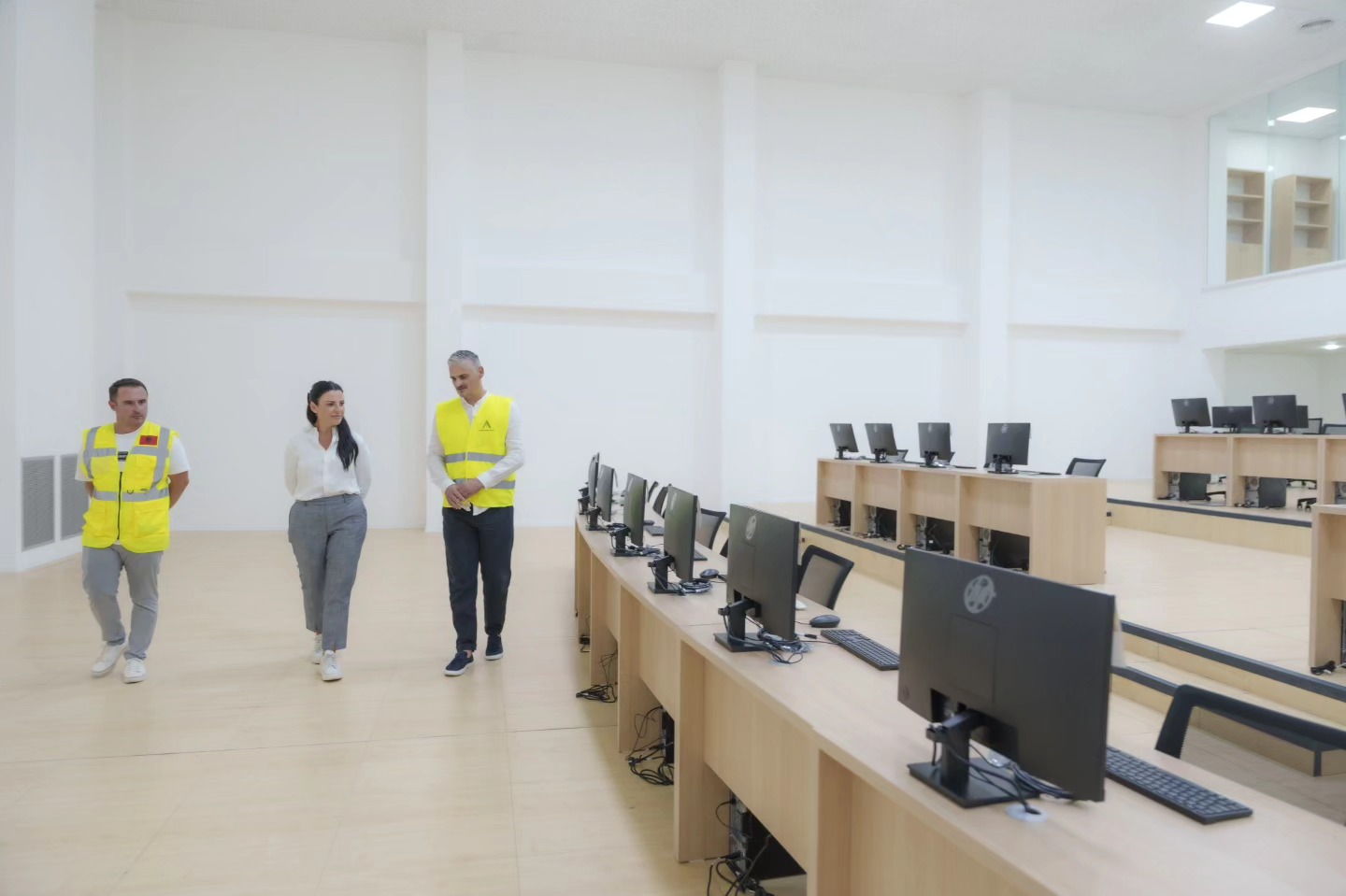Minister Malaj’s Press Conference on the Macroeconomic Situation and Revenue Performance
The Minister of Finance, Mr. Petrit Malaj, held a press conference today, during which he presented the main macroeconomic indicators and the performance of revenue collection.
Minister of Finance Petrit Malaj Speech:
Greetings to everyone,
First, thank you for your participation today.
In this meeting, I would like to share general information regarding the latest economic developments in Albania, including the positive performance of the General Directorate of Taxes and the General Directorate of Customs.
Regarding the latest macroeconomic developments in Albania, during the first quarter of 2024, Albania experienced an economic growth of 3.6%. This growth was mainly supported by the construction and service sectors.
Additionally, we recorded the lowest unemployment rate in Albania’s history at 10.7%. On the other hand, we witnessed a real wage increase during the first quarter of 2024 of 10.8%. The primary contributor to the wage increase was the public sector with a growth of about 13%, followed by the private sector with an increase of 9.7%. It is worth noting that wage growth in the public sector naturally exerts positive pressure on the private sector, which will need to follow suit to remain competitive. The current average wage in Albania stands at €710, while the average wage in the public administration is €900.
Another important indicator is foreign direct investment, which at the end of 2023 reached a stock of €1.5 billion, with an increase of over 8% compared to the foreign direct investment stock at the end of 2022. In the first quarter of 2024, we saw an increase in foreign direct investment by about €47 million, or 15.2% growth compared to the first quarter of 2023.
Regarding fiscal performance in taxes and customs, in the first seven months of 2024, we saw a revenue increase of 11.4%, or over 22.4 billion ALL, more than the same period in 2023. The Tax Administration has also done an excellent job in collecting social insurance contributions, which grew by about 11.6% or about €96 million more than in the first seven months of 2023.
Another indicator reflecting economic development and consumption growth, mainly due to wage increases in the public sector and tourism growth, is the reported turnover of businesses. This increased by about 45%, or about €2.1 billion more, in declared annual turnover during the first seven months of 2024 compared to the same period in 2023.
The General Directorate of Taxes also performed well in collecting personal income tax, with double-digit growth. In the public sector, personal income tax collection increased by 21.4%, while in the private sector, it grew by 14.9% compared to the first seven months of 2023. In total, tax performance, including the collection of contributions and direct and indirect taxes, grew by 11.3%, or 22.2 billion ALL more in the state budget compared to the first seven months of 2023.
Regarding customs, they also performed well. Customs reported a 7.9% increase in the first seven months of 2024, or about €96 million more than the same period in 2023.
Other important indicators reflecting positive economic developments in the country include the number of new registered businesses. We had over 4,700 more businesses in the first seven months of 2024 compared to the same period in 2023. Additionally, over 13,000 new jobs were created in the first seven months of 2024 compared to 2023, and the number of contributors to the social and health insurance scheme increased by over 8,900 people.
In general terms, regarding debt, at the end of 2023, it stood at 58.9%, in line with legal obligations. We anticipate lowering the debt level to 58.2% during 2024, a decrease of 0.7% from the end of 2023.
Given the positive economic performance and that of the General Directorate of Taxes and Customs, we have created new fiscal spaces for 2024 and 2025, meaning more state investments.
Regarding capital investments, based on the revenues and fiscal spaces we have created, we plan for government capital investments to increase by €340 million for 2024-2025 compared to initial plans.
As a result of the positive revenue performance, not only from taxes and customs but also from local government revenues and non-tax revenues, the Ministry of Finance, as you are aware, proposed significant changes to the 2024 budget to the Council of Ministers at the end of August. These additional revenues were thought to be distributed in ways that would have a higher social impact while also contributing to sectors that drive economic growth, such as infrastructure, energy, tourism, agriculture, and digitalization.
More specifically, we have increased infrastructure investments, which are necessary to support important sectors like tourism, which has a major impact on the country’s economic development. The recent announcement by Prime Minister Rama regarding the number of passengers passing through Rinas Airport is impressive. Between January and August, the number of passengers increased by about 2.6 million, representing a growth of over 56%. Naturally, this large number of tourists requires infrastructure support, which is why we consider infrastructure investments essential.
In parallel, we have increased investments in water supply and sewage systems, which need further development, especially given that during the tourist season, the population multiplies. Investments in irrigation and drainage infrastructure, which serve the agriculture sector, have also been prioritized, as agriculture is a key contributor to Albania’s GDP.
Regarding the allocation of social funds, we have planned additional financing for the Ministry of Interior to compensate police officers for their food and extra working hours during the tourist season.
We have also allocated funds to the Ministry of Defense to compensate families affected by natural disasters. These obligations were accumulated from the past, but we have now allocated a fund to settle them.
Finally, we have made additional social investments in healthcare, particularly in primary and secondary care services.
This concludes the general overview of the macroeconomic situation.
Thank you.



